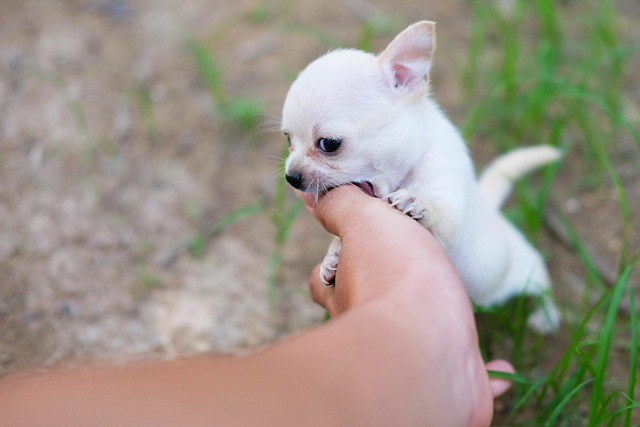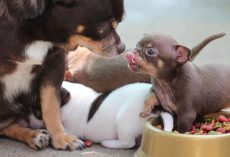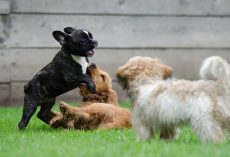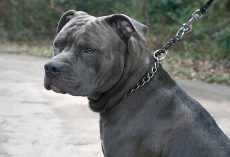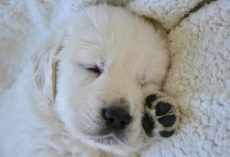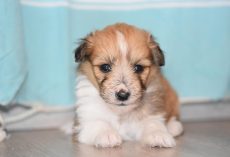Everything about your new puppy feels perfect — except for one little habit he just won’t quit: the biting.
Those tiny teeth may be cute, but your fingers and ankles would definitely disagree.
The good news? Puppy nipping is completely normal and usually easy to fix with patience, consistency, and the right strategy. If you have an older, well-mannered dog at home, you may even notice your adult pup naturally teaching good manners. But if your new puppy is an only child, it’s up to you to guide him toward gentler behavior.
Here’s why puppies bite, what not to do, and how to teach your little one that hands and feet are off-limits.
Why Puppies Bite in the First Place
Puppies use their mouths the same way human babies use their hands — to explore, play, and learn. Because they’re still developing social skills, they tend to nip a lot more than adult dogs.
Common reasons puppies bite include:
1. Playfulness
Mouthiness is a natural part of canine play, especially when they’re excited.
2. Exploration
Your hands, sleeves, and shoelaces are always conveniently nearby — and therefore irresistible.
3. Attention-seeking
Many puppies quickly learn that nibbling at hands gets a response, even if it’s not the one you want to give.
4. Teething discomfort
Just like human babies, teething puppies crave pressure on their gums. Biting anything (including you) brings temporary relief.
Nipping isn’t a sign of aggression. But if biting escalates into growling, snarling, or intentional harm, that’s a red flag requiring professional help. It’s much easier to teach gentle behavior early, before habits form.
What Not to Do When Your Puppy Bites
Before training your puppy, you may need to retrain your own response. Some reactions actually encourage nipping or damage your puppy’s trust.
Avoid these common mistakes:
❌ Never yell or hit.
Punishment doesn’t teach your puppy what to do — it only creates fear, confusion, and distrust.
If you need to interrupt the behavior, a sharp “Ah!” or “Hey!” works better, followed by praise when he stops.
❌ Don’t wiggle your hands around his face.
Fast-moving hands look like toys. Avoid roughhousing with your hands — use a toy instead.
❌ Don’t reward biting with cuddles or attention.
Even negative attention can reinforce the behavior. Puppies repeat what works.
Tools That Make Training Easier
Training your puppy not to bite doesn’t require much — just the right mindset and a few helpful tools:
✔ Patience
Change won’t happen overnight. Consistency is your superpower.
✔ Plenty of toys
Toys teach the difference between appropriate chewing and inappropriate mouthing.
✔ A crate or puppy playpen
If you can’t supervise closely — or if guests unintentionally encourage mouthing — a safe space with toys prevents bad habits from forming.
How to Train Your Puppy to Stop Nipping
Here are the core rules for stopping puppy biting in a gentle, effective way:
1. Make sure your puppy gets enough exercise.
A tired puppy is a polite puppy.
Without an outlet for energy, nipping skyrockets.
2. Always keep a toy nearby.
During play, toys should be your first line of defense.
If your hands are the only exciting thing in reach, guess what your puppy will go for?
Redirect gently and reward when he chooses the toy.
3. Use the “Ow!” method to teach bite inhibition.
If your puppy nips your hand:
- Say “Ow!” loudly — not angrily, just enough to startle him slightly.
- Immediately stop play.
- Turn your back or leave the room for 10–30 seconds.
- Return and resume play calmly.
He’ll quickly learn:
Biting = the fun stops.
4. Avoid rough play during the “witching hour.”
Most puppies have a predictable energy surge once or twice a day.
During these zoomie sessions, they’re overstimulated and not thinking clearly — the worst time for hands-on play.
Let them:
- run
- chew a toy
- work on a puzzle feeder
… but keep fingers out of the action.
5. Encourage licking instead of biting.
If your puppy isn’t getting the message:
- Put a tiny smear of peanut butter on your hand to encourage gentle licking.
- Or try bitter apple spray on your hands as a deterrent (safe and very effective).
This helps him associate hands with calm, gentle behavior — not nipping.
With Patience, Your Puppy Will Outgrow Biting
Puppy nipping is a phase — and with consistency, your pup will learn quickly.
Stick with the training, be patient, and keep playtime structured. Before long, you’ll have a polite, gentle dog who knows exactly how to behave.
And most importantly?
Playtime will become way more fun — and a lot less painful. 🐾
We independently pick all the products we recommend because we love them and think you will too. If you buy a product from a link on our site, we may earn a commission.

